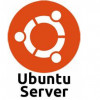USN-7120-1: Linux kernel vulnerabilities
USN-7120-1: Linux kernel vulnerabilities
19 November 2024
Several security issues were fixed in the Linux kernel.
Releases
Ubuntu 24.04 LTS Ubuntu 22.04 LTS
Packages
linux - Linux kernel
linux-aws - Linux kernel for Amazon Web Services (AWS) systems
linux-gcp - Linux kernel for Google Cloud Platform (GCP) systems
linux-gcp-6.8 - Linux kernel for Google Cloud Platform (GCP) systems
linux-gke - Linux kernel for Google Container Engine (GKE) systems
linux-hwe-6.8 - Linux hardware enablement (HWE) kernel
linux-ibm - Linux kernel for IBM cloud systems
linux-nvidia - Linux kernel for NVIDIA systems
linux-nvidia-6.8 - Linux kernel for NVIDIA systems
linux-nvidia-lowlatency - Linux low latency kernel for NVIDIA systems
linux-oem-6.8 - Linux kernel for OEM systems
linux-oracle - Linux kernel for Oracle Cloud systems
linux-raspi - Linux kernel for Raspberry Pi systems
Details
Several security issues were discovered in the Linux kernel.
An attacker could possibly use these to compromise the system.
This update corrects flaws in the following subsystems:
File systems infrastructure;
Network traffic control;
(CVE-2024-46800, CVE-2024-43882)
Reduce your security exposure
Ubuntu Pro provides ten-year security coverage to 25,000+ packages in Main and Universe repositories, and it is free for up to five machines.
Ubuntu 24.04
- linux-image-6.8.0-1014-gke - 6.8.0-1014.18
- linux-image-6.8.0-1015-raspi - 6.8.0-1015.17
- linux-image-6.8.0-1016-ibm - 6.8.0-1016.16
- linux-image-6.8.0-1016-oracle - 6.8.0-1016.17
- linux-image-6.8.0-1016-oracle-64k - 6.8.0-1016.17
- linux-image-6.8.0-1017-oem - 6.8.0-1017.17
- linux-image-6.8.0-1018-gcp - 6.8.0-1018.20
- linux-image-6.8.0-1018-nvidia - 6.8.0-1018.20
- linux-image-6.8.0-1018-nvidia-64k - 6.8.0-1018.20
- linux-image-6.8.0-1018-nvidia-lowlatency - 6.8.0-1018.20.1
- linux-image-6.8.0-1018-nvidia-lowlatency-64k - 6.8.0-1018.20.1
- linux-image-6.8.0-1019-aws - 6.8.0-1019.21
- linux-image-6.8.0-49-generic - 6.8.0-49.49
- linux-image-6.8.0-49-generic-64k - 6.8.0-49.49
- linux-image-aws - 6.8.0-1019.21
- linux-image-gcp - 6.8.0-1018.20
- linux-image-generic - 6.8.0-49.49
- linux-image-generic-64k - 6.8.0-49.49
- linux-image-generic-64k-hwe-24.04 - 6.8.0-49.49
- linux-image-generic-hwe-24.04 - 6.8.0-49.49
- linux-image-generic-lpae - 6.8.0-49.49
- linux-image-gke - 6.8.0-1014.18
- linux-image-ibm - 6.8.0-1016.16
- linux-image-ibm-classic - 6.8.0-1016.16
- linux-image-ibm-lts-24.04 - 6.8.0-1016.16
- linux-image-kvm - 6.8.0-49.49
- linux-image-nvidia - 6.8.0-1018.20
- linux-image-nvidia-64k - 6.8.0-1018.20
- linux-image-nvidia-lowlatency - 6.8.0-1018.20.1
- linux-image-nvidia-lowlatency-64k - 6.8.0-1018.20.1
- linux-image-oem-24.04 - 6.8.0-1017.17
- linux-image-oem-24.04a - 6.8.0-1017.17
- linux-image-oracle - 6.8.0-1016.17
- linux-image-oracle-64k - 6.8.0-1016.17
- linux-image-raspi - 6.8.0-1015.17
- linux-image-virtual - 6.8.0-49.49
- linux-image-virtual-hwe-24.04 - 6.8.0-49.49
After a standard system update you need to reboot your computer to make all the necessary changes.


